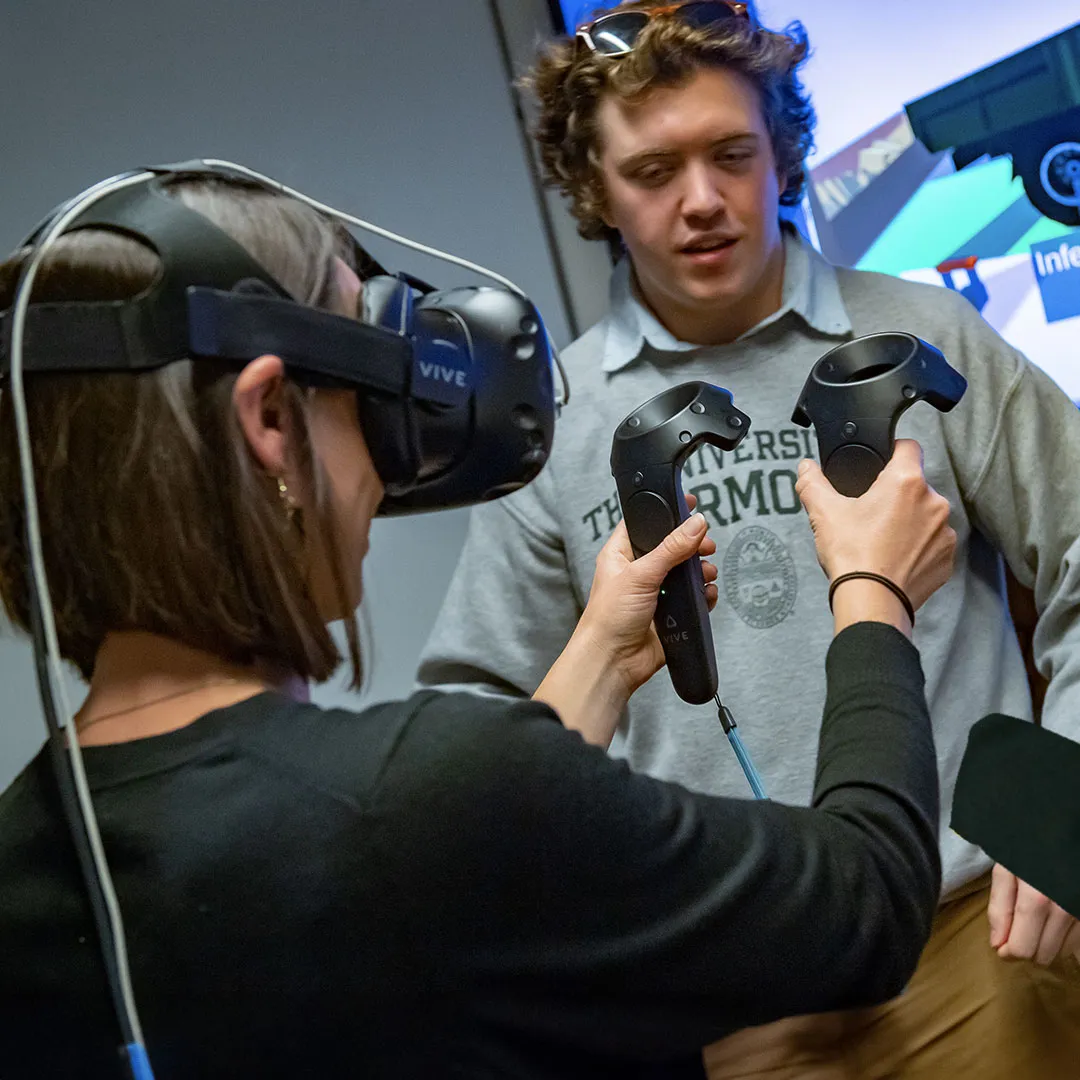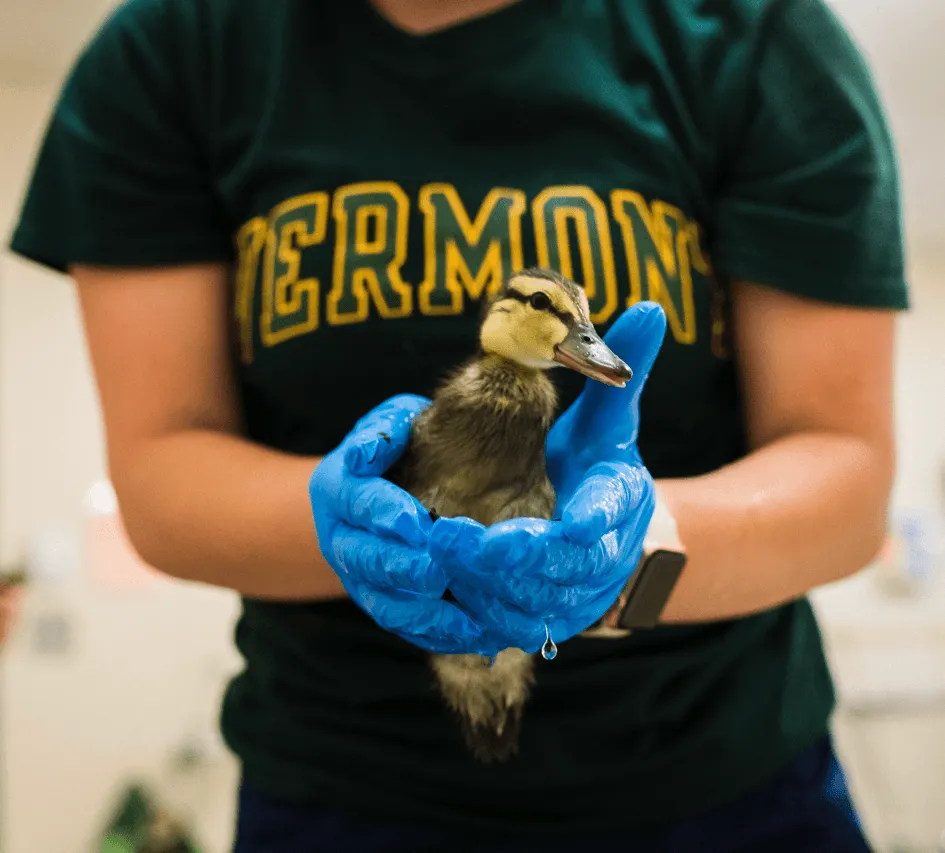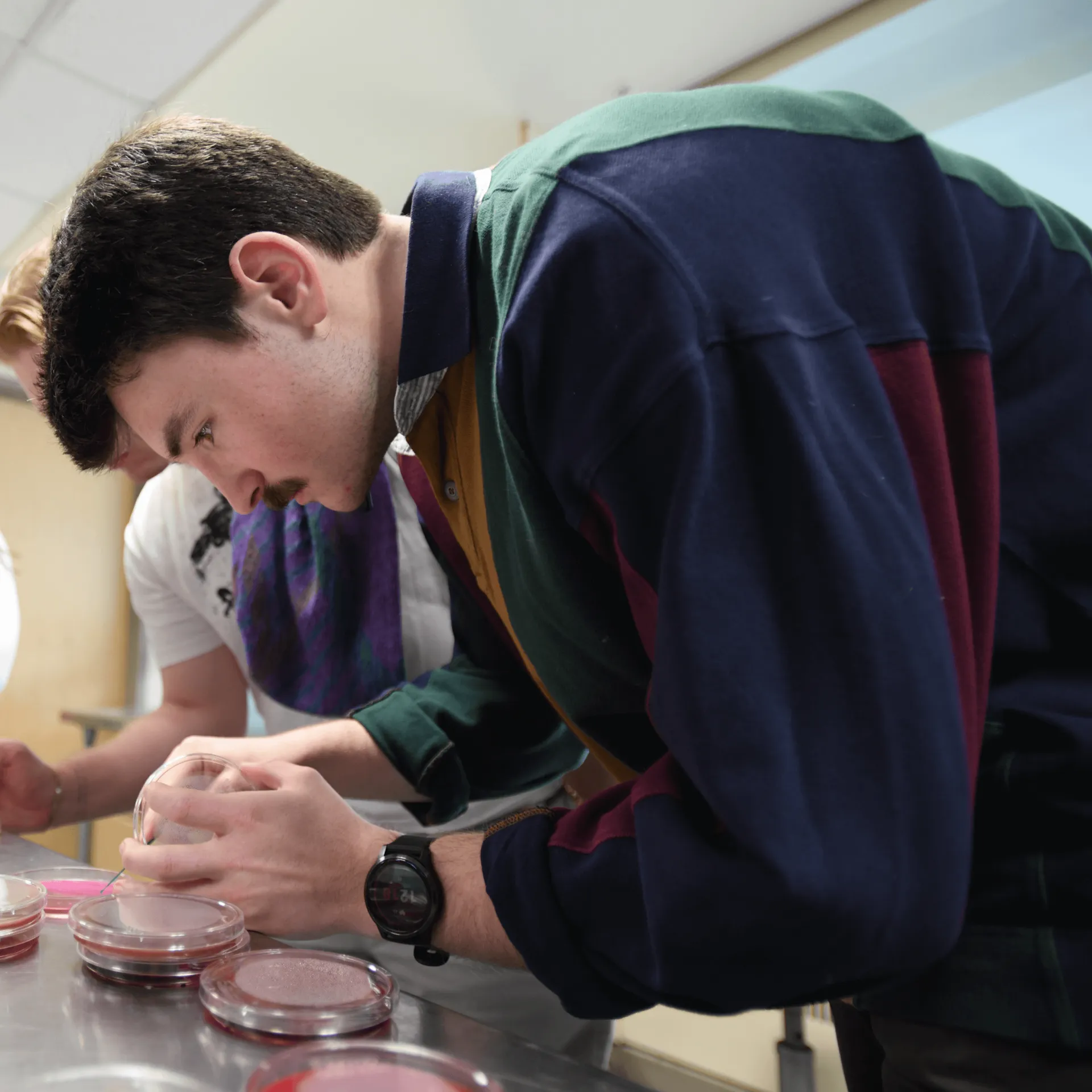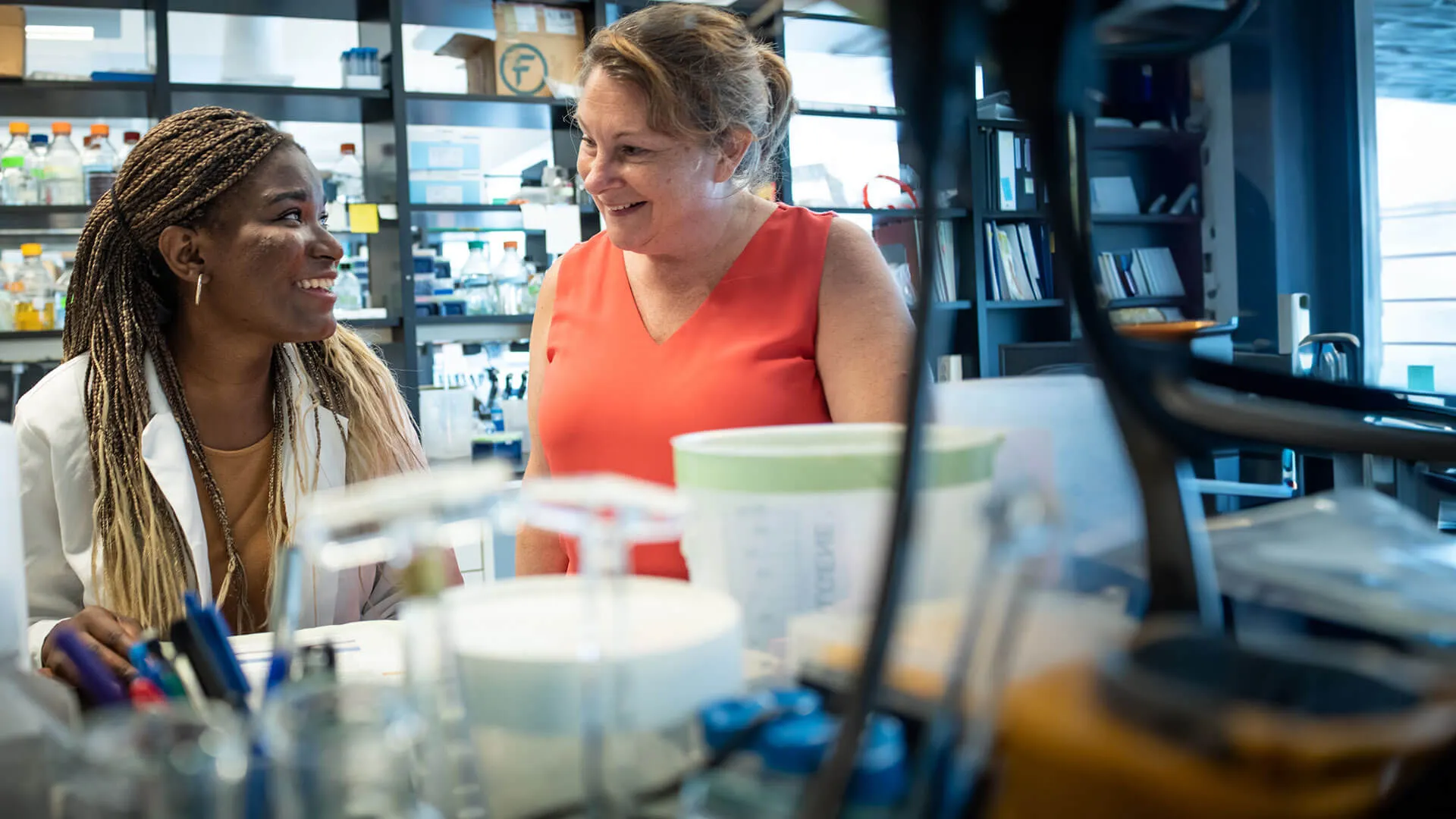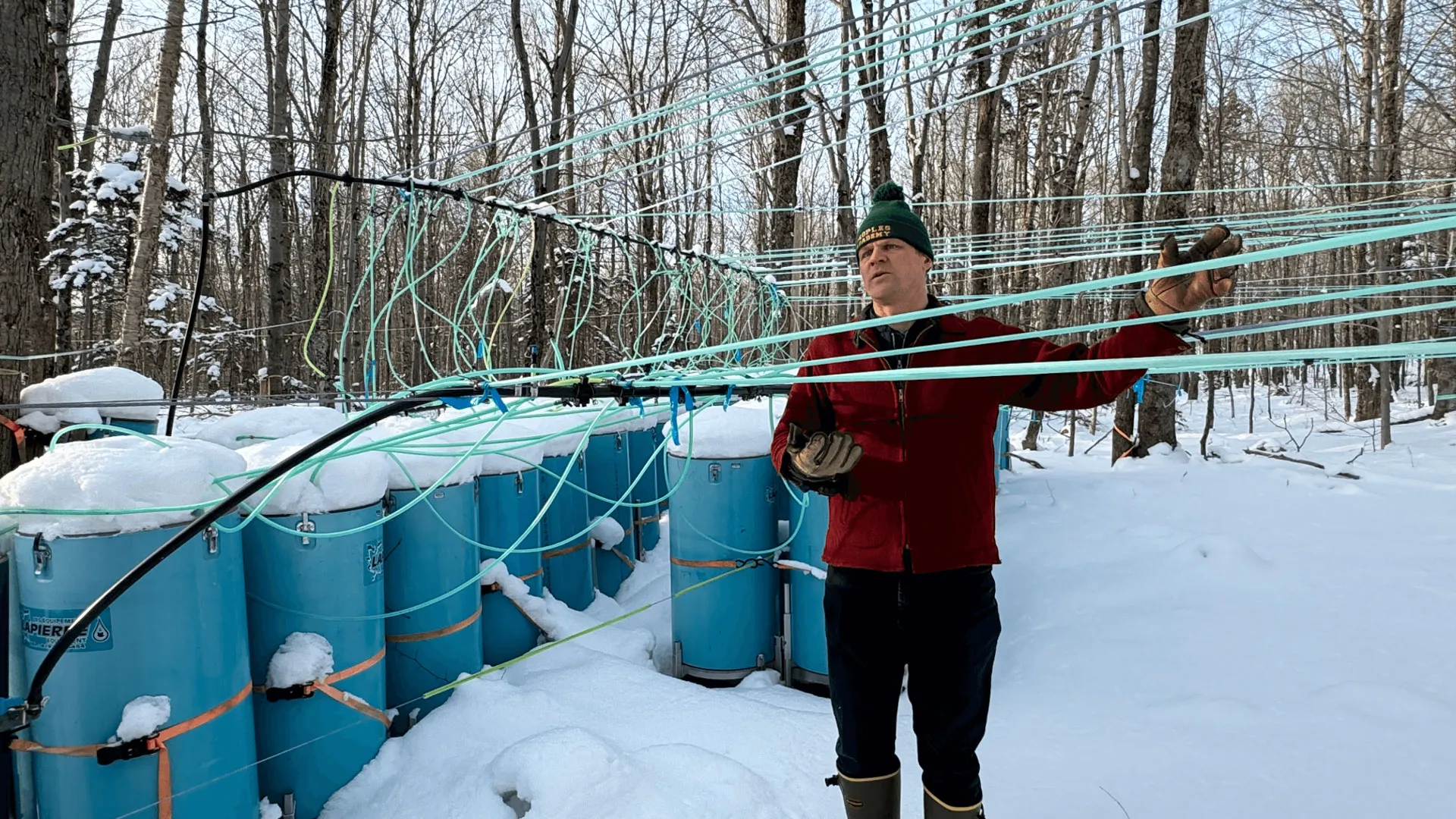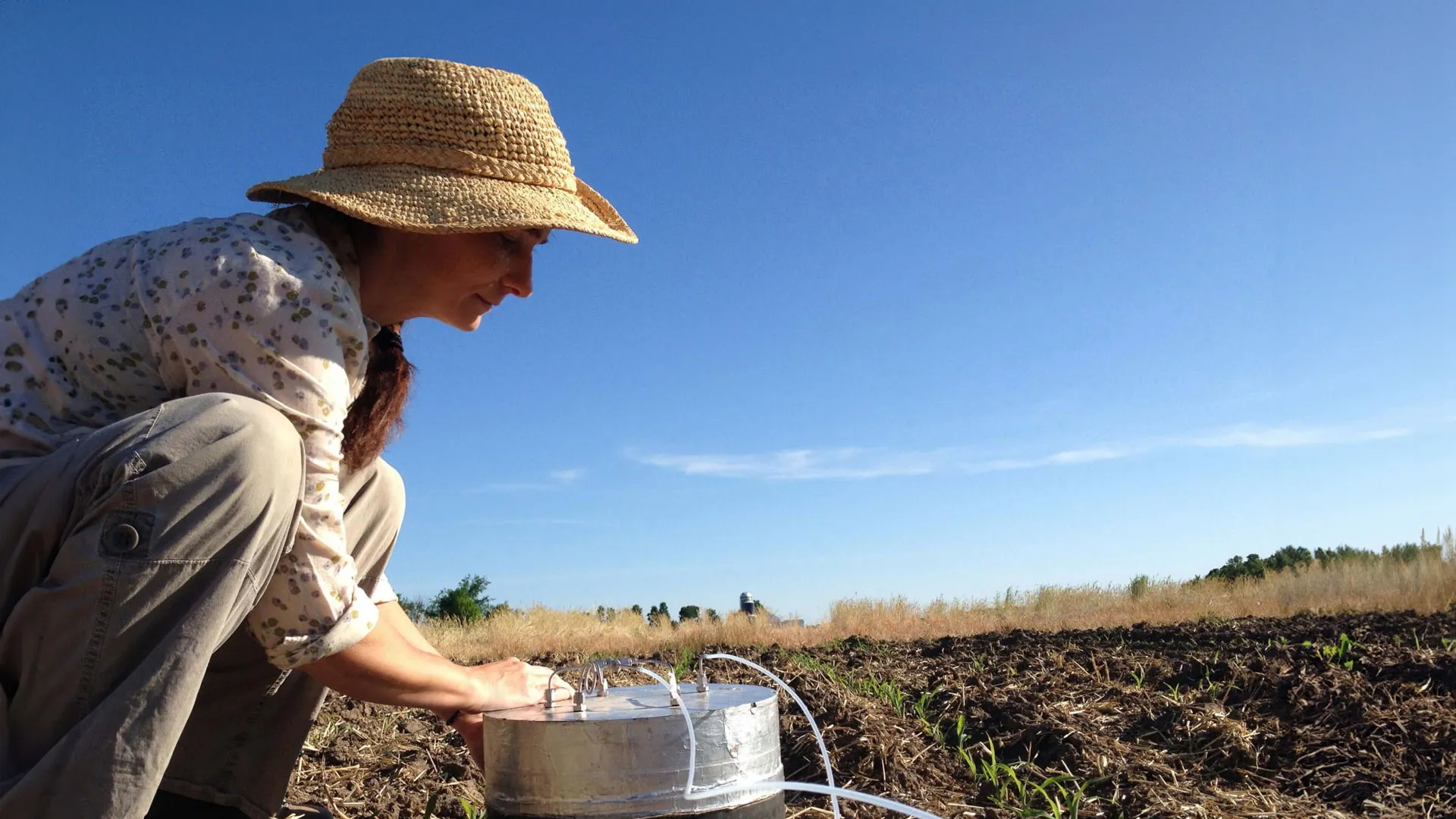CALS students consider a "planetary health" approach, understanding that the health of people, communities, animals, plants, and ecosystems are linked. Their studies span a diverse spectrum and can encompass veterinary, animal, and plant sciences, as well as biological, microbiological, molecular, and biochemical sciences. They explore sustainable agriculture, food systems, and nutrition alongside the social sciences of agroecology, economics, and community development. Public communication skills are honed, empowering our students to build more just societies and create impacts that will lead to a better future for all.
What makes CALS unique

Exploring Globally

Community is the Classroom
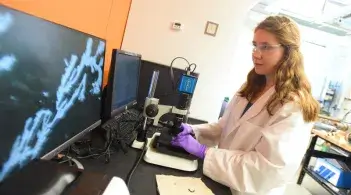
Embracing Innovation
By the numbers
- ~120 faculty across academic units and Extension
- 14 undergraduate majors
- 1,333 undergraduate students (Fall 2023)
CALS in the news
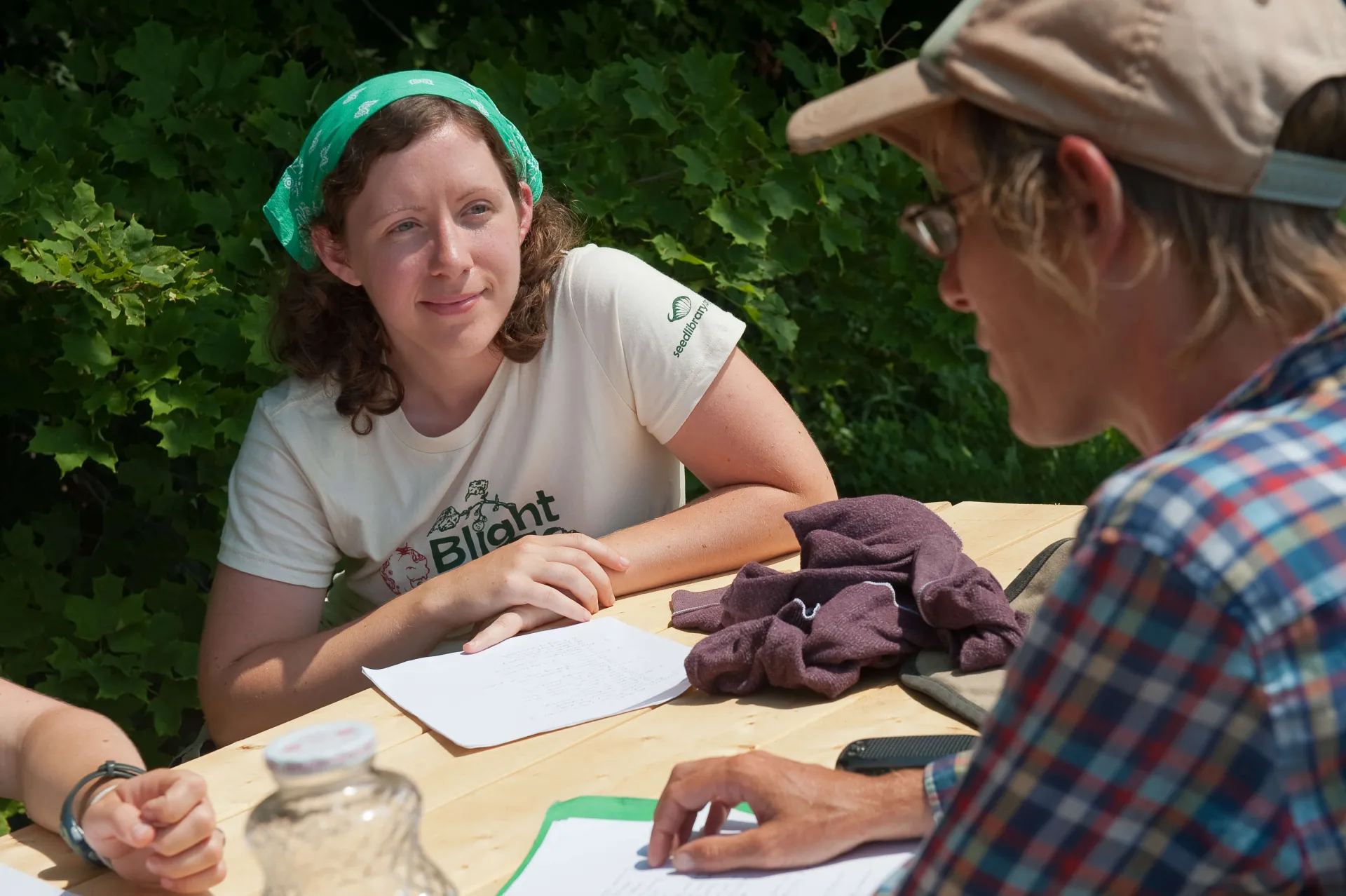
Farm Advisors Trust Their Gut Over Algorithms, for Now

From Community Development Classroom to Caribbean Coastline:
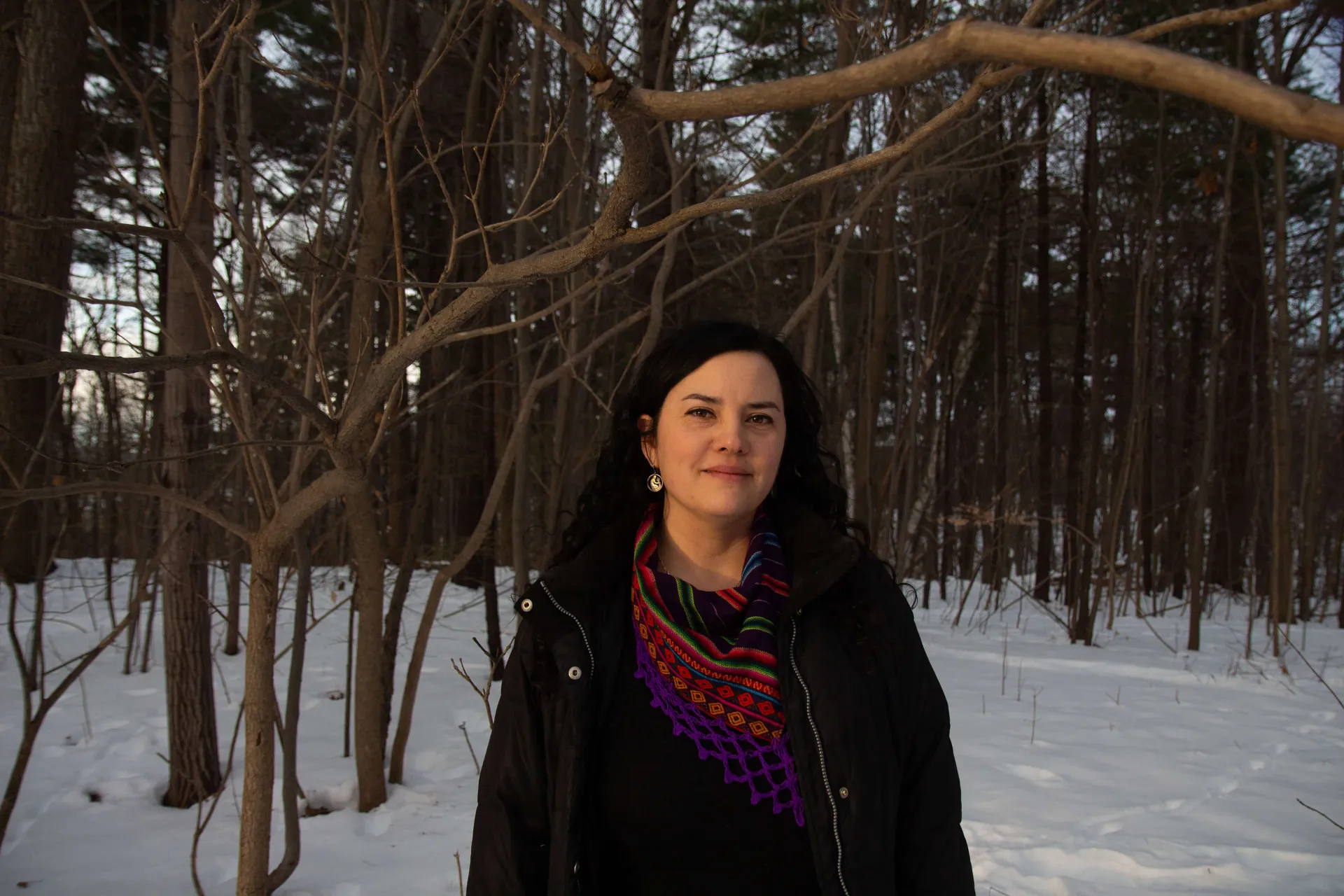
CALS Food Systems Alumna, Institute For Agroecology Postdoc Amaya Carrasco-Torrontegui On Researching Our Relationship To The Planet
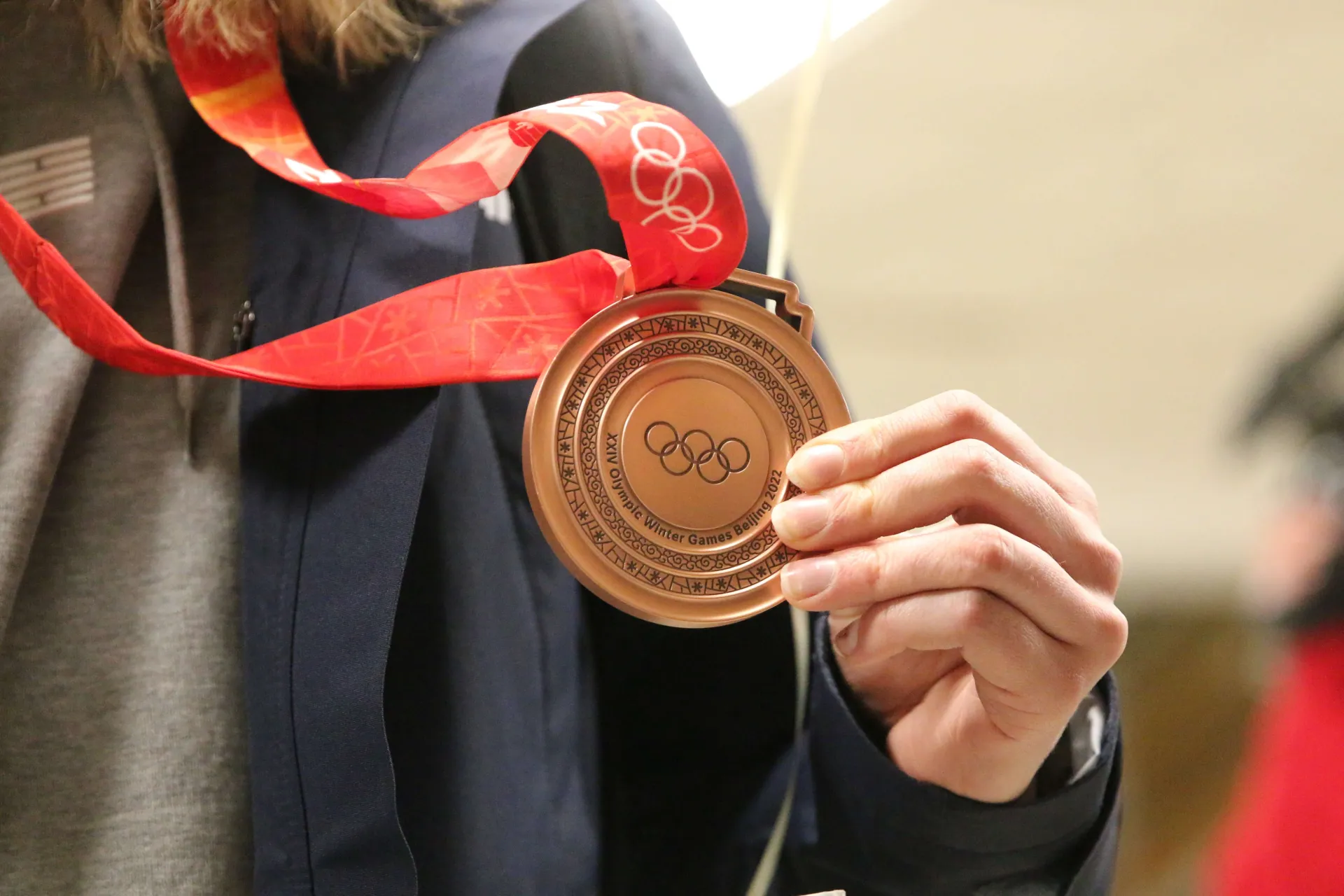
Sini Karjalainen, CALS Alumna, to Play in 2026 Winter Olympic Games
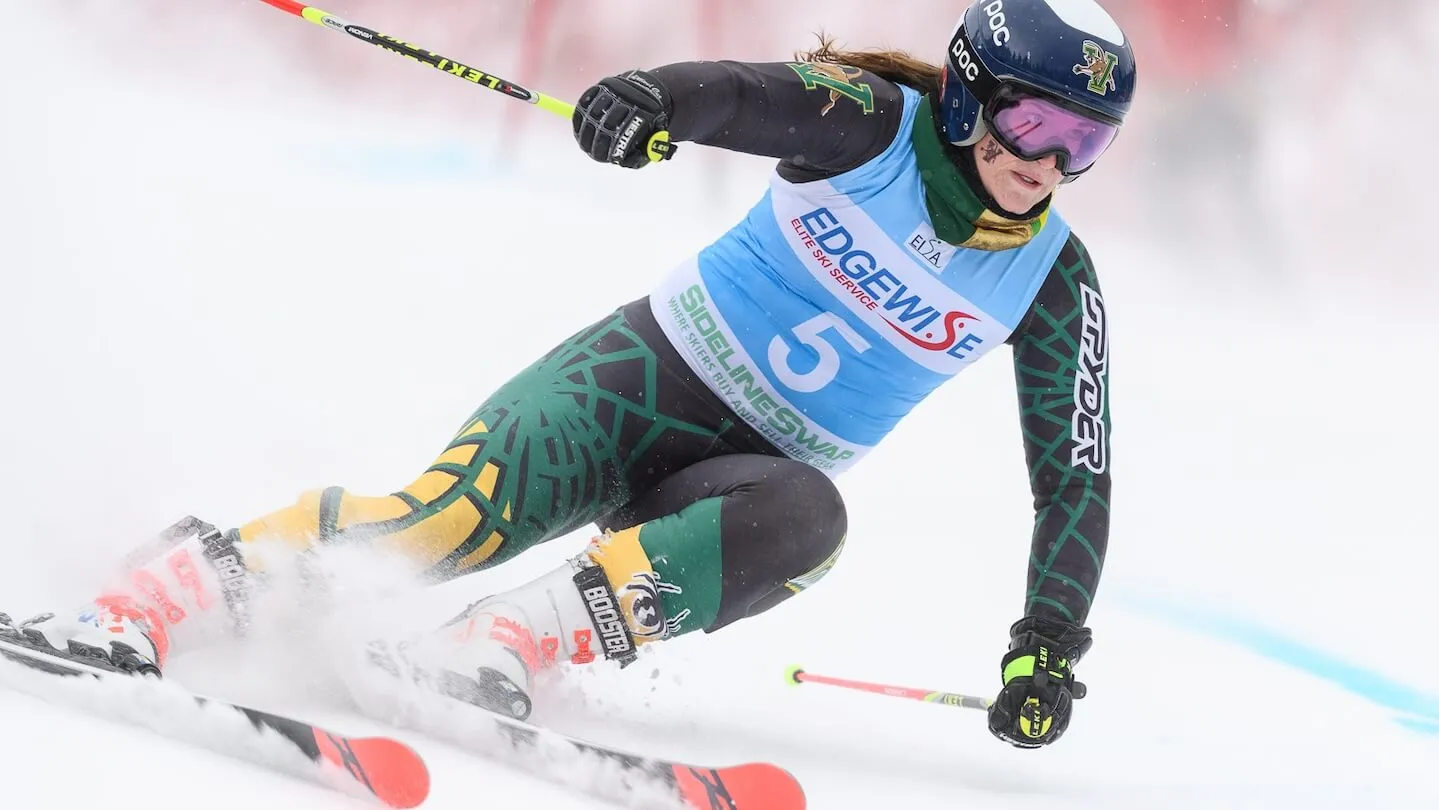
Nine UVM Olympians to Compete in the 2026 Winter Games in Italy
Students, faculty, staff, and members of the public participating in VT-AES programs can access information about civil rights protections at the UVM Office of Equal Opportunity home page. Staff with the Office of Equal Opportunity are available to answer questions about reasonable accommodations, anti-discrimination policy, reporting, support measures, and related topics. Students interested in reasonable accommodations for a disability-related condition are encouraged to contact Student Accessibility Services.
